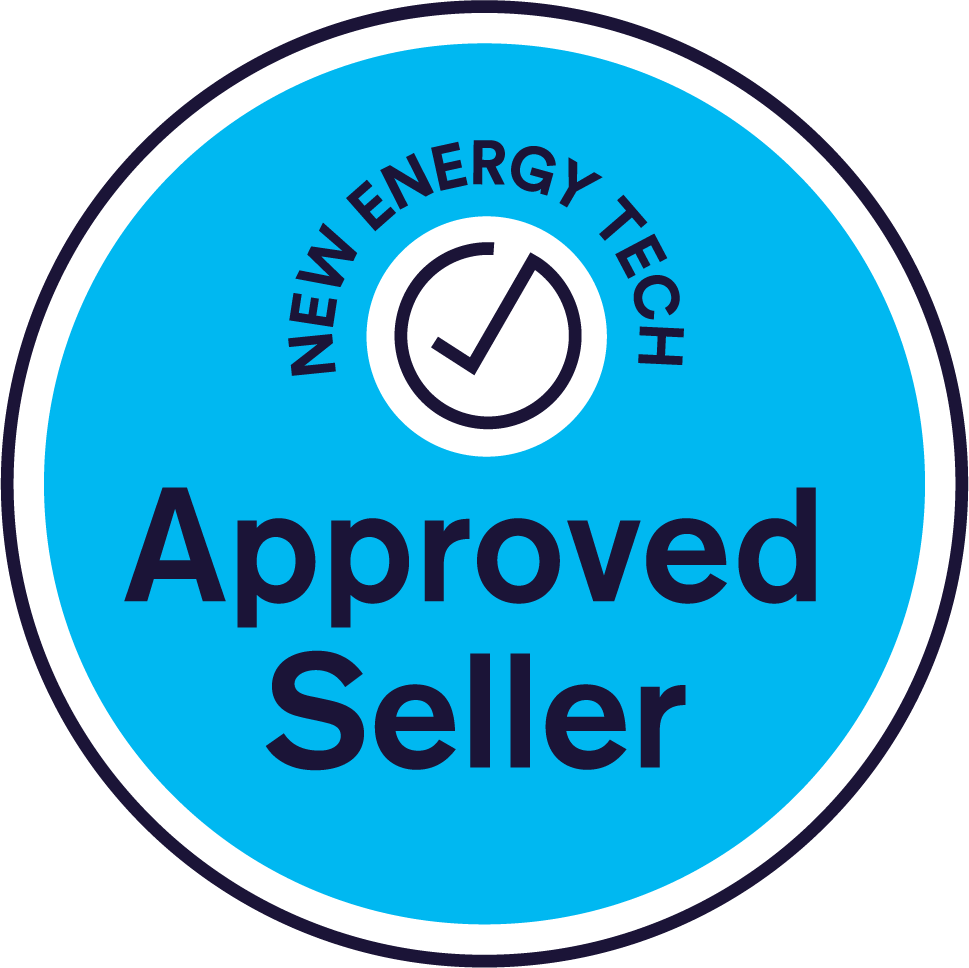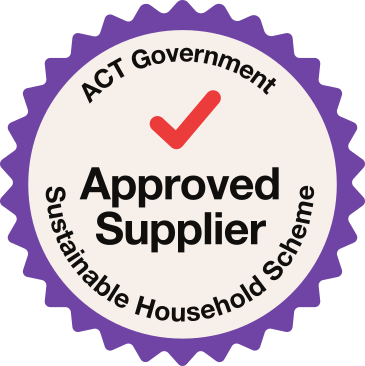Commercial solar panels offer sustainable energy solutions for Australian businesses. They reduce electricity costs and enhance environmental responsibility.
Australia's abundant sunlight makes it an ideal location for harnessing solar energy. Commercial solar panels provide businesses with a reliable and cost-effective energy source. By installing solar panels, companies can significantly lower their electricity bills and reduce their carbon footprint.
This sustainable energy choice not only supports environmental goals but also boosts a company's public image. Government incentives and rebates further make solar energy an attractive investment. With advancements in technology, solar panels are now more efficient and affordable than ever. Embracing solar power can lead to long-term savings and energy independence for Australian businesses.
Introduction To Commercial Solar Panels
Commercial solar panels are a game-changer for Australian businesses. They help reduce energy costs and support a sustainable future. Solar panels convert sunlight into electricity, cutting down on utility bills. Many Australian businesses are turning to solar energy for these reasons.
Why Go Solar?
Solar panels provide a clean, renewable energy source. They reduce carbon footprints and help combat climate change. Solar energy is abundant in Australia, making it an ideal choice. Businesses can use solar energy to show their commitment to the environment.
Economic Benefits
Solar panels can save businesses money on electricity bills. They offer a great return on investment. Here are some key economic benefits:
- Reduction in energy costs
- Government incentives and rebates
- Increased property value
| Benefit | Description |
|---|---|
| Energy Savings | Lower monthly electricity bills |
| Incentives | Government rebates and tax credits |
| Property Value | Higher resale value of your property |
Types Of Commercial Solar Panels
Australia's commercial solar panel market offers several types of solar panels. These options help businesses save on energy costs and reduce their carbon footprint. Let's explore the types of commercial solar panels available.
Monocrystalline Panels
Monocrystalline panels are made from single-crystal silicon. These panels are efficient and have a high power output. They look sleek with their uniform dark color. Monocrystalline panels are perfect for businesses with limited roof space.
- High efficiency
- Durable and long-lasting
- Great for limited space
Polycrystalline Panels
Polycrystalline panels are made from silicon fragments melted together. They are slightly less efficient than monocrystalline panels. These panels have a bluish hue due to their crystal structure. Polycrystalline panels are more affordable, making them a cost-effective choice.
- Cost-effective
- Moderate efficiency
- Good for larger roof spaces
Thin-film Panels
Thin-film panels are made by placing thin layers of photovoltaic material on a substrate. These panels are flexible and lightweight. They are less efficient but are ideal for large areas where weight is a concern. Thin-film panels are suitable for warehouses and industrial buildings.
- Lightweight and flexible
- Suitable for large areas
- Less efficient but cost-effective
Cost Analysis And Savings
Understanding the cost analysis and savings of commercial solar panels is crucial. Businesses in Australia can significantly benefit from solar energy. This section breaks down the costs and savings involved.
Initial Investment
The initial investment for commercial solar panels includes several factors. These include:
- Purchase cost of solar panels
- Installation fees
- Permits and inspection costs
- Maintenance setup
A typical 50 kW solar panel system costs around AUD 70,000 to AUD 90,000. This range covers panels, inverters, and installation. Government incentives and rebates can reduce the upfront cost.
Long-term Savings
Long-term savings from solar panels are substantial. Businesses save on electricity bills and reduce dependency on the grid. Some key savings include:
- Lower monthly electricity bills
- Reduced operational costs
- Protection against energy price hikes
On average, businesses save 30% to 50% on electricity bills. This saving can be reinvested into the business.
Return On Investment
The return on investment (ROI) for commercial solar panels is attractive. Businesses can recoup their investment in a few years. Key factors influencing ROI include:
- Initial system cost
- Electricity savings
- Government incentives
Most businesses see a full ROI within 3 to 7 years. After this period, the energy savings contribute directly to profits.
Consider these factors when evaluating commercial solar panels. The savings and ROI make it a wise investment for Australian businesses.
Government Incentives And Rebates
Commercial solar panels in Australia offer many benefits. One of the biggest advantages is the availability of government incentives and rebates. These incentives help businesses save money and reduce their carbon footprint.
Federal Incentives
The Australian federal government provides several incentives for commercial solar panels. These incentives make solar energy more affordable and accessible for businesses.
- Renewable Energy Target (RET): Encourages the installation of solar systems by providing Renewable Energy Certificates (RECs).
- Small-scale Technology Certificates (STCs): Available for systems under 100 kW, STCs can significantly reduce upfront costs.
- Large-scale Generation Certificates (LGCs): Offered for larger systems, these certificates can be sold to generate additional revenue.
State-specific Programs
Each Australian state offers unique incentives and rebates for commercial solar panels. These programs are designed to support local businesses in their transition to renewable energy.
| State | Program | Details |
|---|---|---|
| New South Wales | Empowering Homes | Interest-free loans for solar and battery systems. |
| Victoria | Solar for Business | Rebates up to $3,500 for eligible businesses. |
| Queensland | Solar for Small Business | Grants up to $5,000 for small businesses. |
Tax Benefits
Investing in commercial solar panels also brings tax benefits. These benefits further reduce the cost of solar energy for businesses.
- Instant Asset Write-Off: Businesses can write off the cost of solar systems immediately.
- Depreciation Benefits: Solar panels can be depreciated over time, providing ongoing tax deductions.
- Research and Development (R&D) Tax Incentive: Businesses involved in solar technology innovation can claim additional tax benefits.
Installation Process
Installing commercial solar panels in Australia involves multiple steps. Each step ensures efficiency and effectiveness. Learn about site assessment, choosing a provider, and the installation timeline.
Site Assessment
A thorough site assessment is the first step. Experts visit your location. They evaluate roof condition and available space. They also check for shading issues. These factors impact panel efficiency.
Experts use special tools to measure sunlight. They calculate the best panel placement. Accurate assessment ensures maximum energy production.
Choosing A Provider
Choosing a reliable solar provider is crucial. Look for certified installers. Check their experience and reviews. Compare quotes from multiple providers.
Consider the quality of solar panels they offer. High-quality panels last longer and produce more energy. Ensure they provide warranties and post-installation support.
Installation Timeline
The installation timeline varies. Here's a general breakdown:
| Step | Duration |
|---|---|
| Site Assessment | 1-2 days |
| Choosing a Provider | 1-2 weeks |
| Installation Preparation | 1 week |
| Actual Installation | 3-5 days |
| Final Inspection | 1 day |
After installation, an inspector checks the system. They ensure it meets safety standards. Once approved, your system is ready.
Maintenance And Upkeep
Maintaining commercial solar panels ensures they operate efficiently. Regular checks, cleaning, and timely repairs keep them in top condition. Let's explore how you can maintain your solar panels effectively.
Regular Inspections
Regular inspections identify potential issues early. Schedule inspections at least twice a year. During inspections, check for:
- Loose connections
- Damaged panels
- Shading from new obstructions
Keep an eye on the inverter display. Ensure it shows a green light indicating everything is working well.
Cleaning Tips
Clean panels improve energy efficiency. Dust, bird droppings, and leaves can block sunlight. Follow these cleaning tips:
- Use soft brushes or cloths to avoid scratches.
- Clean early in the morning or late afternoon.
- Avoid using harsh chemicals.
For stubborn dirt, use a hose with gentle water pressure. Ensure water doesn't enter the electrical components.
Repair And Replacement
Timely repairs prevent further damage. Replace damaged panels immediately to avoid energy loss. Common repairs include:
- Fixing loose connections
- Replacing broken panels
- Repairing inverter issues
Always hire certified professionals for repairs. They ensure safety and quality workmanship.
Environmental Impact
Commercial solar panels have a profound impact on the environment in Australia. They provide a clean and sustainable energy source. This helps businesses reduce their ecological footprint and promotes a greener future.
Reducing Carbon Footprint
Switching to commercial solar panels significantly reduces carbon emissions. Traditional energy sources like coal and gas produce a lot of carbon dioxide. Solar energy, on the other hand, is clean and renewable. Here’s how solar panels help:
- Lower greenhouse gas emissions
- Reduced air pollution
- Less reliance on fossil fuels
Businesses can cut their carbon footprint by up to 80%. This is crucial for tackling climate change.
Sustainable Business Practices
Investing in solar panels promotes sustainable business practices. Solar energy is a renewable resource. It ensures long-term energy security. Here are the key benefits:
| Benefit | Explanation |
|---|---|
| Cost Savings | Lower energy bills and maintenance costs |
| Energy Independence | Reduced dependence on external energy sources |
| Brand Image | Enhanced reputation as an eco-friendly business |
Adopting solar energy can attract environmentally conscious customers. It also sets a positive example for the community. Businesses can lead the way in sustainability.
Case Studies Of Australian Businesses
Commercial solar panels are transforming businesses across Australia. Companies are seeing benefits in energy savings and sustainability. Here, we explore some inspiring case studies.
Success Stories
| Business | Industry | Energy Savings |
|---|---|---|
| ABC Manufacturing | Manufacturing | 30% |
| Green Grocers | Retail | 25% |
| Eco Hotels | Hospitality | 40% |
ABC Manufacturing installed solar panels two years ago. They cut their energy bills by 30%. This allowed them to invest in new equipment. Productivity improved, and their carbon footprint reduced.
Green Grocers, a local retail store, saw a 25% drop in electricity costs. They used the savings to expand their product line. Customers love the store's commitment to sustainability.
Eco Hotels achieved a 40% reduction in energy expenses. Guests appreciate the eco-friendly approach. The hotel chain received positive media coverage and new bookings.
Challenges And Solutions
Some businesses faced challenges during their solar panel installations. Here are a few examples and how they overcame these issues:
- Initial Costs: The upfront cost was high for some. They used government rebates and financing options to manage expenses.
- Roof Space: Limited roof space was a problem. They installed high-efficiency panels to maximize output.
- Maintenance: Regular maintenance was needed. Businesses hired local experts for routine check-ups and cleaning.
These solutions helped Australian businesses successfully adopt solar technology. They now enjoy long-term benefits and sustainability.
Future Of Solar Energy In Australia
The future of solar energy in Australia looks bright. Solar energy is gaining momentum rapidly. Businesses are now keen on adopting commercial solar panels. This shift is driven by cost savings and environmental benefits.
Technological Advancements
New technologies are making solar panels more efficient. Monocrystalline and polycrystalline panels are improving. These panels convert more sunlight into electricity. Advanced inverters are also enhancing energy conversion. They ensure minimal energy loss.
Batteries are another critical advancement. Modern batteries store more energy for longer periods. This helps businesses use solar power even during cloudy days. Smart grids integrate solar power seamlessly. They distribute energy efficiently across the network.
Market Trends
The market for solar panels in Australia is expanding. More companies are investing in solar energy. Government incentives are encouraging this shift. Feed-in tariffs and tax credits reduce the upfront costs.
Here is a table showing the growth of solar energy adoption:
| Year | Total Capacity (MW) | Growth Rate (%) |
|---|---|---|
| 2020 | 10,000 | 20% |
| 2021 | 12,000 | 25% |
| 2022 | 15,000 | 30% |
Businesses are realizing the financial benefits. Reduced electricity bills are a significant advantage. Sustainability is another driving factor. Companies aim to reduce their carbon footprint. Solar energy helps achieve this goal.
Frequently Asked Questions
What Size Are Commercial Solar Panels Australia?
Commercial solar panels in Australia typically measure around 2 meters by 1 meter. They usually generate 400 to 500 watts.
Which Solar Panel Is Best For Commercial Use?
The best solar panels for commercial use are SunPower, LG, and Panasonic. They offer high efficiency, durability, and excellent warranties.
Who Are The Largest Solar Retailers In Australia?
Australia's largest solar retailers include Tesla, Sunrun, Solargain, and Energy Matters. They offer a range of solar solutions nationwide.
How Much Does A 10kw Solar System Cost In Australia?
A 10kW solar system in Australia typically costs between AUD 8,000 to AUD 14,000. Prices vary based on brand and installer.
Conclusion
Switching to commercial solar panels in Australia offers significant benefits. Businesses can save on energy costs and reduce their carbon footprint. By investing in solar energy, companies contribute to a sustainable future. Embrace solar power and enjoy long-term financial and environmental rewards.
Solar panels are a smart choice for Australian businesses.



